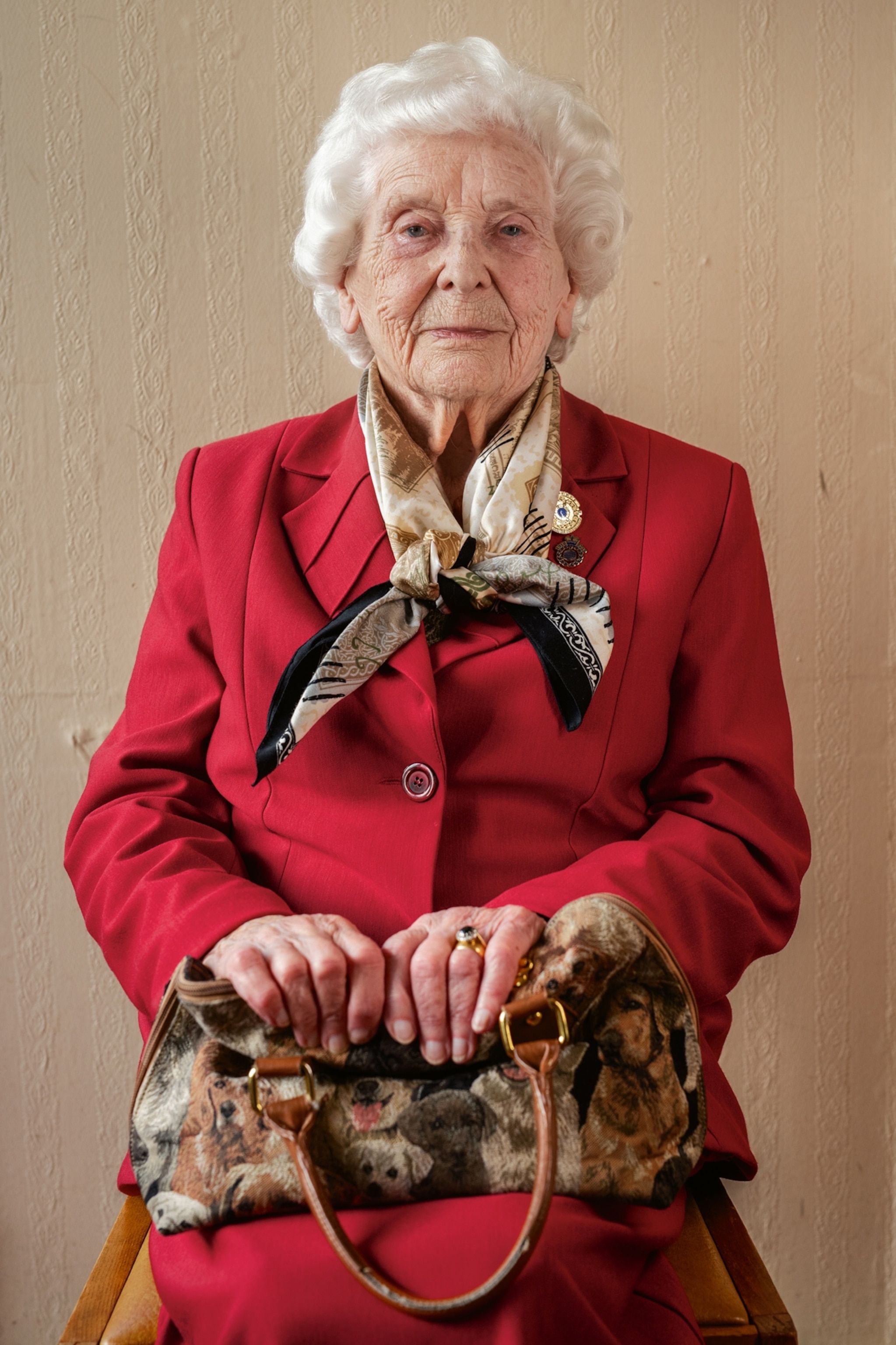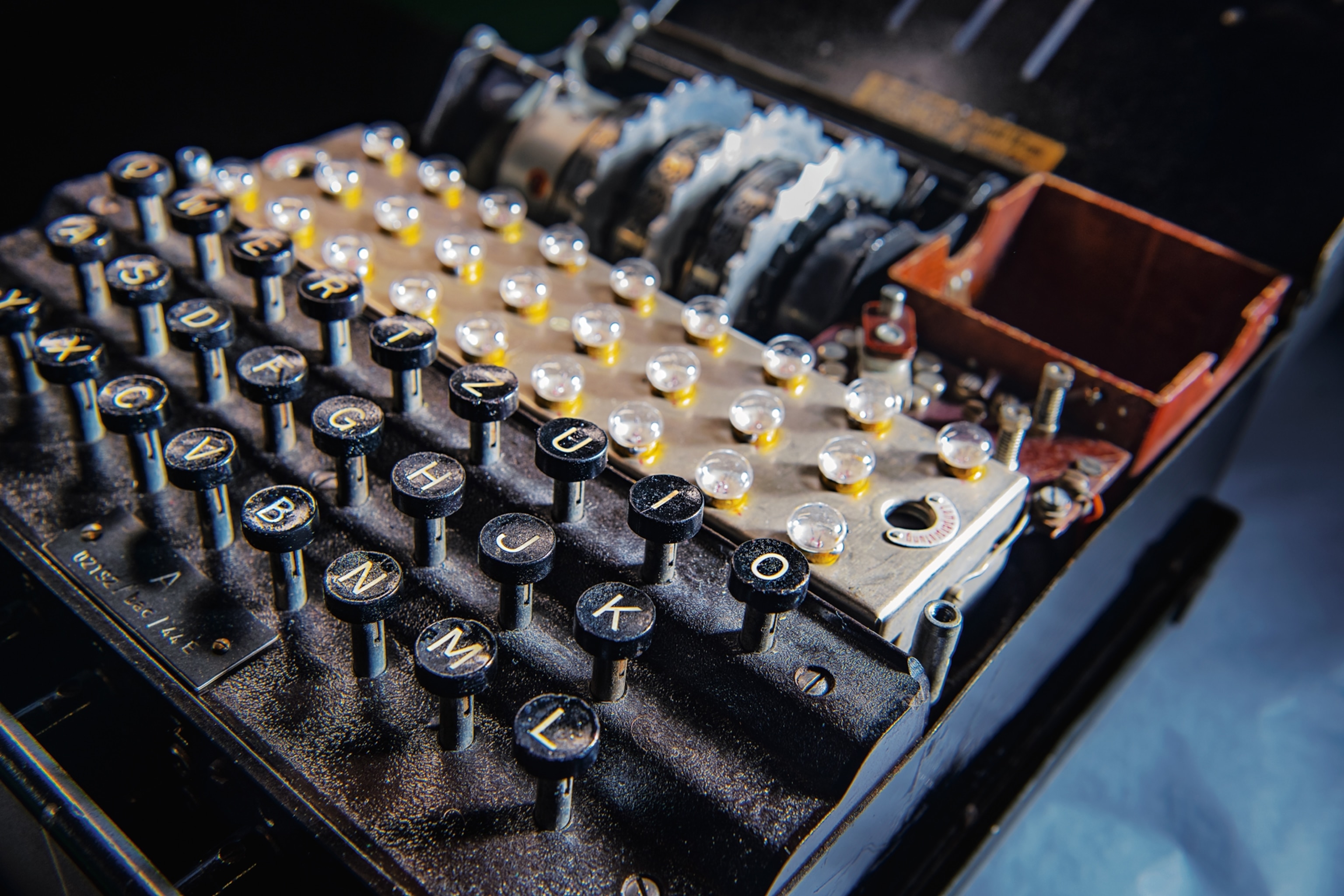‘I wanted to do something more for the war effort than bake sausage rolls.’
Betty Webb, British intelligence

“It was in that room there that I signed the Official Secrets Act.” Betty Webb, 97, points with her walking stick to a ground floor room in the baronial mansion at Bletchley Park, Britain’s legendary top secret code-breaking facility during World War II. Through the bay window, a massive desk is visible. “There was a senior intelligence officer seated behind that desk,” she says, “and I remember he had a handgun lying casually beside him, right where that coffee cup is now. I was told to sign and made to understand in no uncertain terms that I could never discuss anything about my work here with anyone. I signed. It was a sobering moment. I was 18 years old at the time.”
That was in 1941. Britain was at war. German troops had already overrun much of Europe.
Webb had been taking a home economics course but joined the Auxiliary Territorial Service—the women’s army—because, as she put it, “I wanted to do something more for the war effort than bake sausage rolls.” Webb was bilingual—she’d grown up with a German au pair and had been an exchange student in Germany—so she was ordered to report to Bletchley, an hour or so north of London. “It was so secret I had no idea what it was—nobody did!—let alone what I was getting into.”
Initially Webb was put to work cataloging the thousands of encrypted German radio messages that British listening posts were intercepting each day. But as the war progressed, she moved to a more creative role: paraphrasing priceless nuggets of intelligence gleaned by the code breakers so no one would suspect it had been obtained by broken codes.

“We had to make it sound as though it was information we’d picked up from spies or stolen documents or aerial reconnaissance,” she said. “The fact that we’d broken German and Japanese military codes was a closely guarded secret, known only to a very few people.”
Decades would pass before those who worked at Bletchley Park were allowed to speak about what they did during the war.
Webb enjoyed the work. “I liked the deviousness of it,” she says with a smile. She also worked on intercepted Japanese messages and was so good at paraphrasing their contents that in June 1945, after the war in Europe ended, she was sent to Washington to help the American war effort in the Pacific. “I flew over in a flying boat,” she recalls. “It was the first time I’d ever been up in a plane. I sent my parents a postcard from Washington. I’m sure they must have wondered what I was doing, but of course they never asked, and anyway I could never tell them.”
Decades would pass before any of the people at Bletchley were allowed to speak of their work during the war. “Both of my parents had died by then, so they never knew,” she says. “All the secrecy made it tough to get a job after the war, especially for the men, since you couldn’t tell employers anything about your war years other than that you’d worked at some place called Bletchley Park.”
Webb eventually found work at a school whose headmaster had been at Bletchley. “I never knew him at the time,” she says, “but when he saw on my application that I’d been at Bletchley too, no words needed to be said, no awkward questions asked. I got the job.”